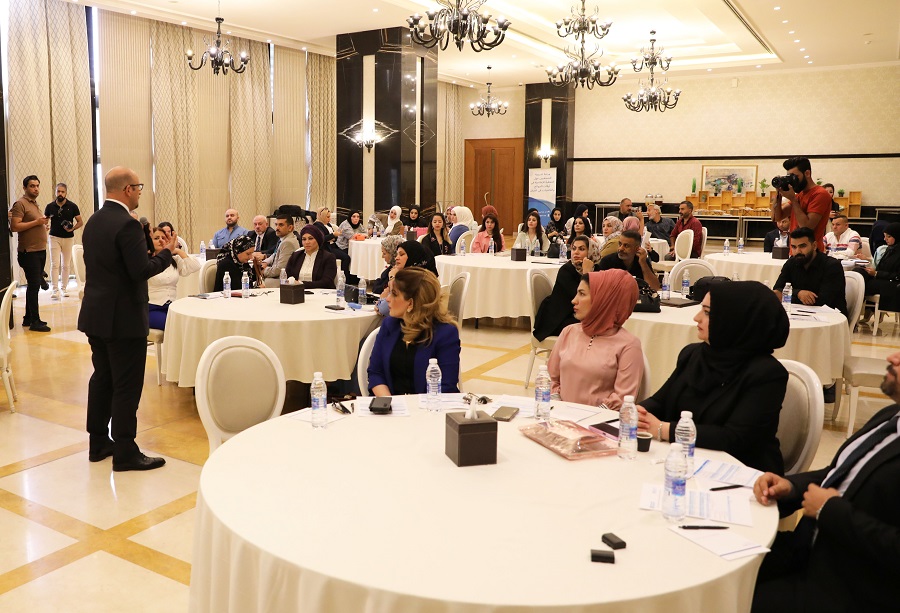 The workshop aimed to equip more than 100 journalists and communication professionals with skills and techniques to accurately cover health issues related to outbreaks affecting Iraq
The workshop aimed to equip more than 100 journalists and communication professionals with skills and techniques to accurately cover health issues related to outbreaks affecting Iraq
Baghdad, Iraq, 18 August 2022 – The World Health Organization (WHO), in collaboration with the Ministry of Health, the Food and Agriculture Organization of the United Nations (FAO) and the Commission of Media and Communications (CMC), concluded today in Baghdad a training workshop on media coverage for outbreaks and emergencies in Iraq.
The workshop aimed to equip more than 100 journalists and communication professionals from different Iraqi media outlets and relevant ministries with skills and techniques to accurately cover health issues related to outbreaks affecting Iraq, including COVID-19, cholera, and Crimean-Congo haemorrhagic fever.
The workshop is an integral part of WHO’s approach to establishing an effective partnership between the media/health sectors in Iraq to ensure that Iraqi women and men are provided with accurate and evidence-based information on health hazards.
“The role of the media is pivotal in promoting health, educating communities and addressing rumours related to outbreaks. It is paramount to build an effective partnership between media and health sectors to ensure we raise awareness of Iraqi people on matters related to their health and based on scientific facts and evidence-based advice during emergencies and outbreaks,” said Dr Ahmed Zouiten, WHO Representative in Iraq. “The role of media specialists in reducing the impact of outbreaks and saving lives is just as important as that of health specialists."
“The partnership with media professionals and journalists is very critical in ensuring accurate coverage of disease outbreaks in Iraq, conveying the right message and raising awareness among the population,” explained Dr Salah El-Hajj Hassan, FAO Representative in Iraq.
The workshop included technical and practical sessions delivered by experts from WHO and FAO on ongoing outbreaks in Iraq and the methods for analysing outbreak data to improve the media content and direct it towards raising awareness of the population. The participants were also equipped with tips on ‘’One Health” approach to control the diseases transmitted from animals to humans, notably Crimean-Congo haemorrhagic fever.
Practical sessions were also conducted to allow participants to apply lessons learned in producing real-time, quality products for TV, radio and social media.
WHO, along with partners, will continue to build the capacity of people working in the media, communication specialists and social media influencers to build their capacity on covering outbreaks and health concerns in Iraq.


